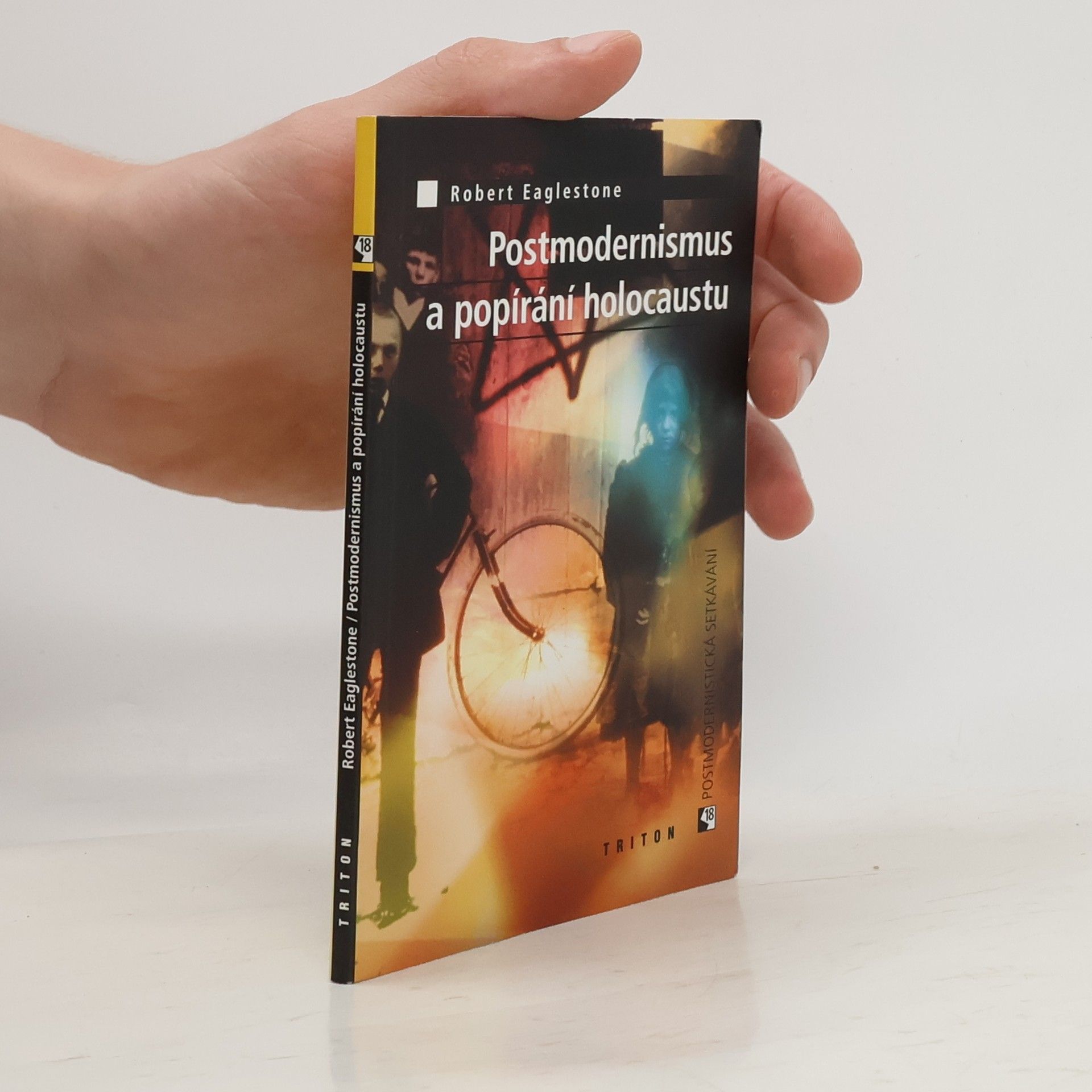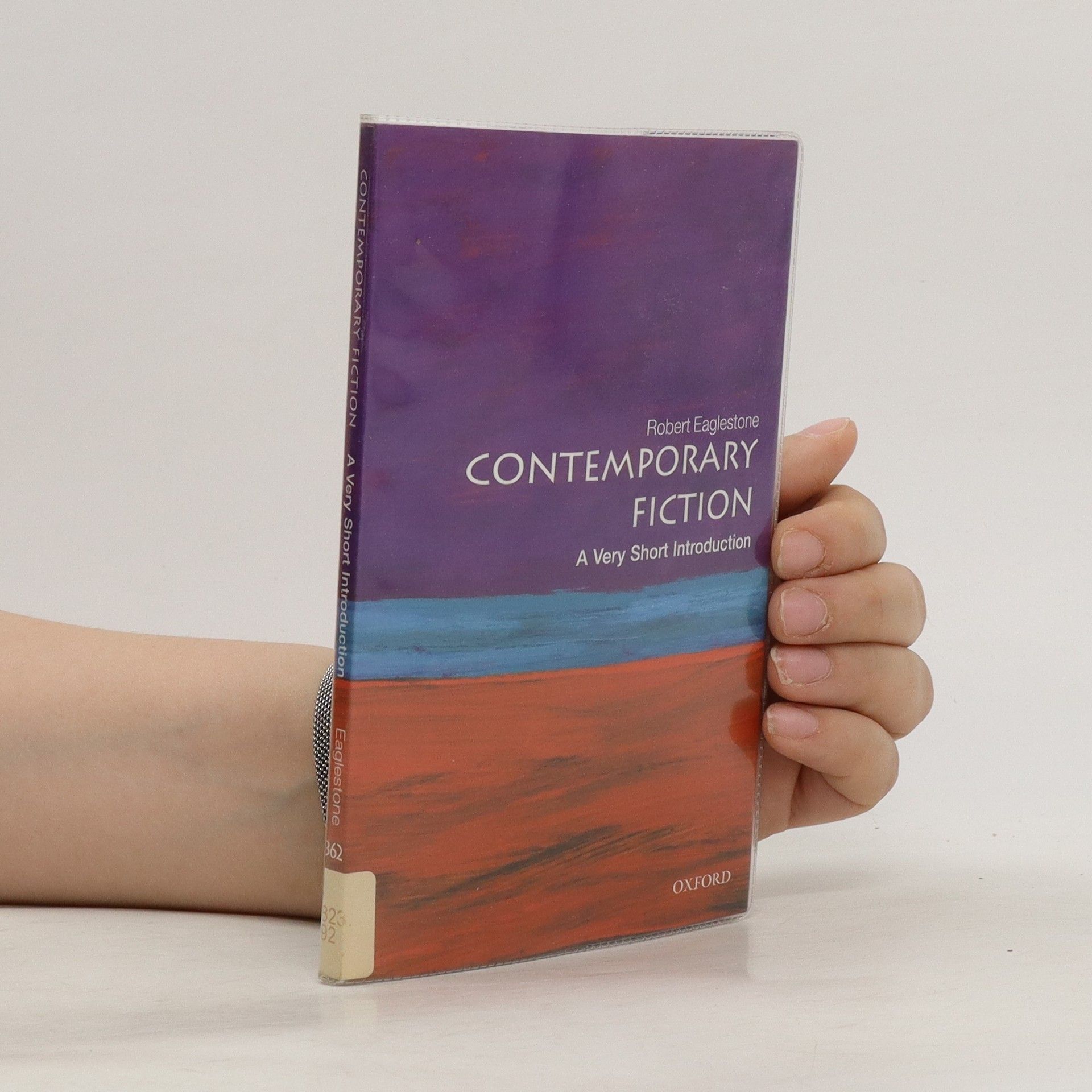The book offers an accessible introduction to the philosophies of Plato and Aristotle, highlighting their significant impact on literary and cultural studies, as well as modern languages. It explores how their ideas continue to influence contemporary reading, thinking, and everyday life, making complex concepts understandable and relevant to various disciplines.
Robert Eaglestone Book order (chronological)
Robert Eaglestone is a British academic and writer whose work deeply explores how literature 'thinks' and investigates ethical questions. His scholarship focuses on contemporary literature, literary theory, and modern European philosophy, often drawing on insights from memory and trauma studies. Eaglestone is concerned with how literature helps people make sense of themselves and the contemporary world. His writings emphasize that contemporary fiction is a crucial tool for exploring and shaping our identity today.






Contemporary fiction : a very short introduction
- 114 pages
- 4 hours of reading
In thie Very short introduction Robert Eaglestone explores the major themes, patterns, and debates surrounding the contemporary novel. From genre, form, and experimentalism, to the relationship between globalization and terror, and the impact of technology, Eaglestone examines how contemporary fiction reflects both the world in which we live and the artistic concerns of writers and readers alike. -- Cover.
Frantz Fanon
- 162 pages
- 6 hours of reading
This book serves as an introduction to the views of the anticolonial thinker Frantz Fanon and charts his influence on postcolonial studies, literary critism, and cultural studies.
Stephen Greenblatt
- 148 pages
- 6 hours of reading
Questioning not just literary but social, political and cultural assumptions about knowledge and power, Greenblatt's work has had a huge impact on contemporary theory. This work discusses ideas specific to particular works and explores the relation of Greenblatt's thought to new historicism as well as other modes of criticism.
Postmodernismus a popírání holocaustu
- 66 pages
- 3 hours of reading
Deborah Lipstadtová, americká akademička, označila Davida Irvinga, popíratele holocaustu, za „hitlerovského partyzána, který nosí klapky na očích“. On ji poté zažaloval a ve zcela jasném případě prohrál. Soudce prohlásil, že Irving „vytrvale a záměrně dezinterpretuje a manipuluje s historickými důkazy“ a je to „antisemita a rasista“. Tato kniha vysvětluje a prozkoumává sporné otázky, které byly v sázce v Irvingově případě. Podle Lipstadtové někteří historikové věří, že postmodernistické ideje vyvolávají fenomény, jako je popírání holocaustu. Jiní prosazují názor, že „relativismus“ postmoderní historie „zlehčuje mrtvé“. Jsou tato tvrzení pravdivá? Nebo se snad kritikové postmodernismu v tomto případě hluboce mýlí? Kniha Postmodernismus a popírání holocaustu ukazuje, že otázky, které postmodernismus historii a historikům klade, jsou ve skutečnosti mocné zbraně v boji proti popírání holocaustu. Robert Eaglestone zcela jasně a bez vědeckého žargonu zkoumá takové otázky jako: Co je to historie? A jak historie stanovuje své nároky na objektivitu a nestrannost? Toto jsou otázky, které nejenže odhalily Irvinga jakožto nehistorika, ale také ospravedlnily postmodernistickou reakci na popírání holocaustu. Robert Eaglestone přednáší na Anglickém oddělení v Royal Holloway na Londýnské univerzitě. Zaměřuje se na současnou evropskou filosofii a literaturu.